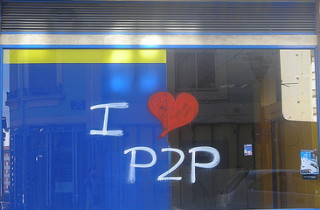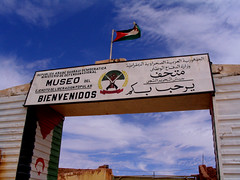A vlog entry regarding how tweets from conflict zones often get repeated and then expanded or exaggerated and then at some point becomes the story.. even if it isn’t accurate. Not to say twitter should be filled with fun, creative lies, and general randomness.. I like that too. But this is specifically about situations where we are getting our information from twitter about places where we can not go or are not able to get to in a moment. Places where sometimes, even the people who are there nearby, can still get the story wrong.
Author Archives: bicyclemark
Portugal, Corporate Playground
 One key point that I didn’t manage to get into for the piece I wrote about Portugal on the Guardian -Comment is Free– a few weeks ago:
One key point that I didn’t manage to get into for the piece I wrote about Portugal on the Guardian -Comment is Free– a few weeks ago:
Corporate Mayhem in Portugal
Although Portugal has never really seen an economic boom on the same scale of many of its European neighbors like Ireland and Spain, there was a period in the late 90’s when the economy was seen as doing quite well. One of the big measures of this success, the number of multinational corporations that opened a production facility or large regional office in the country. Employing lots of people and in theory, contributing tax income for the benefit of every citizen.
In 2001-2002, when I worked in Linda-a-Velha, just outside Lisbon, every morning my bus would pass all the big names that many nations would be excited to have within their borders: Nestlé, Ford, Volkswagon, Agfa, Kodak, Microsoft, Cisco and General Electric, just to name a few. As time passed I met people who worked for these big names, noticed the long hours, hard work, and surprisingly – their uncertain futures at their current jobs. In the years that have passed since this somewhat better economic time, it is big names like these that have repeatedly downsized, moved, and closed down their operations in Portugal. They’ve done so with little notice and even less assistance for their laid off employees. In their wake they left not only unemployment, they also left abandoned buildings, and communities in crisis.
So how does this make Portugal unique when so many people around the world experience such changes? A look at the statistics and the real stories of business being bought, sold, and moved somewhere even cheaper that low priced Portugal would reveal that in fact, Portugal’s strict rules and regulation of businesses does not apply to the multinationals. Excessive roadblocks and red tape for small businesses and individuals looking to get started? – Plenty of that. Basic commitments from large corporations such as contributions to the public well being? -Hardly any.
Now many who have been observing all this happening since the 90’s tend to blame the emergence of the European Union, with its pro-corporate policies and its excessive regulation that hits the smallest and poorest members the hardest. Yet if you zoom out and look at the evolution of the so-called global economy, you can find other examples where some countries who want to attract foreign investment in the quest to become prosperous and modern also get used, abused, and left behind. While the European Union has had a role to play, the symptoms that have made Portugal a very troubled economy, have alot to do with a world economy that says success means profits above all else, and short term gains trump long term sustainability. While they harass and undermine small native initiatives, they sit back and give large multinational entities a free pass to do whatever they please.
Whats Next Wikileaks?
Greetings from Paris, where I’m taking some time to enjoy myself with loved ones, in this the occasion of my 31st Birthday. In honor of this special day and because I’m still reading pages upon pages of leaked cables, I present to you a lovely music video that is both educational and fun.
Fiji Water Closed?
 More than a year since the great investigative reporter Anna Lenzer published her article on the story behind Fiji water (also appearing as a guest on this podcast), the company announced this week it is closing its operation in Fiji. After a long relationship with the ruling military junta, the company announced on their blog on Nov 29:
More than a year since the great investigative reporter Anna Lenzer published her article on the story behind Fiji water (also appearing as a guest on this podcast), the company announced this week it is closing its operation in Fiji. After a long relationship with the ruling military junta, the company announced on their blog on Nov 29:
In Friday’s budget (11.26.10), the Fiji government announced that it will impose a 15-cent per liter tax on bottled water at locations where more than 3.5M liters per month are extracted. FIJI Water, which currently pays 1/3 of a cent per liter, is the only bottled water producer in Fiji affected by the increased tax; bottlers who extract less than this monthly limit will continue to pay about 1/10 of a cent, or 10,000% less tax than FIJI Water.
This new tax is untenable and, as a consequence, FIJI Water is left with no choice but to close our facility in Fiji, effective Monday, Nov. 29, 2010. We are saddened that we have been forced to make a business decision that will result in hardship to hundreds of Fijians who will now be without work.
They went on to refer to the government of Fiji and the terrible state the country is in:
The country is increasingly unstable, and is becoming a very risky place in which to invest.
24 Hours later the company makes a new announcement explaining that after discussions with the government, its factory will reopen:
Through our discussions, we have also agreed to comply with Fiji’s new water tax law……Moving forward, FIJI Water is committed to working with the Fijian government, and remains dedicated to helping the country’s economy and its people.
An odd turn of events, first that they decide yesterday, after more than a year of dealing with an undemocratic government with a questionable human rights record, that they had finally reached their breaking point. Then that after one day of discussions, the government is not as bad as they explained the day before, and that all is fine. It actually impressive they didn’t delete the post from the 29th altogether, pretending it never happened. Perhaps the heavy amount of proof scattered around the internet would have been difficult to take back.
There is much to ask of both the Fiji government, the water company, and drinkers of Fiji water to understand what is going on here. Unfortunately in what has long been an unsustainable operation, doing more harm then self-proclaimed good on this planet, it looks like business as usual. Not that Fiji water drinkers ever really asked anything about the bottle they continue to hold in their hands.
More on this and hopefully some answers to these questions: soon.
ACTA Marches On
 It has been some time since I mentioned the quiet yet highly dangerous global agreement on copyright that is being drafted and adopted with little public consultation, knowledge or understanding. Where once I had hoped out of all the global players sitting behind closed doors, that the European Union would put a stop to policies and principles that would help to stifle anyone who creates or shares content online. This week we found out that the EU is in fact, going along with ACTA.
It has been some time since I mentioned the quiet yet highly dangerous global agreement on copyright that is being drafted and adopted with little public consultation, knowledge or understanding. Where once I had hoped out of all the global players sitting behind closed doors, that the European Union would put a stop to policies and principles that would help to stifle anyone who creates or shares content online. This week we found out that the EU is in fact, going along with ACTA.
For a better idea of just what is going on with this agreement, you can either consult my podcast on this topic, from earlier this year, or more recently I recommend last week’s On the Media program where you can listen to the OTM crew explain ACTA up to the present. It is, as always, very informative and a great listen.
Slavery in Western Sahara
 In the quest to learn more about Western Sahara and how people in that region are living, I have begun reading through human rights reports from refugee camps. Specifically the camps in Tindouf Province, Algeria, where Human Rights Watch did extensive interviewing and research into the living conditions for Sahrawi refugees living there. The total amount of people living in the Tindouf camp is disputed between the various stake holders and the UN, but most numbers hover around 100,000 people.
In the quest to learn more about Western Sahara and how people in that region are living, I have begun reading through human rights reports from refugee camps. Specifically the camps in Tindouf Province, Algeria, where Human Rights Watch did extensive interviewing and research into the living conditions for Sahrawi refugees living there. The total amount of people living in the Tindouf camp is disputed between the various stake holders and the UN, but most numbers hover around 100,000 people.
The particular section that caused controversy and anger when it was released back in 2008, is the one focused on slavery. Although authorities vehemently deny that there is any sort of slavery going on at the camp, Human Rights Watch interviews featured in that document indicate that in fact there were cases where black skinned Sahrawis were owned by other Sahrawis. This ownership is not the kind where one has to work for the owner (although forced domestic labor only ended in 1978), but it does involve all females having to get permission for their owners in order to marry. Without this permission no judge or marriage efficient will marry them, regardless if there is permission from the actual father or mother.
There were also reports that slave families have, in some cases, been able to obtain an official agreement or document confirming an end to the relationship to their owner. A sort of officially recognized end to their slavery. Again, in response to such testimony back in 2008, authorities (known as the Polisario) deny such a document exists, and repeatedly deny any modern day forms of slavery in the refugee camps.
Another piece of the Western Sahara puzzle. Although the report is already for than 2 years old, it barely saw the light of day in the major media outlets.